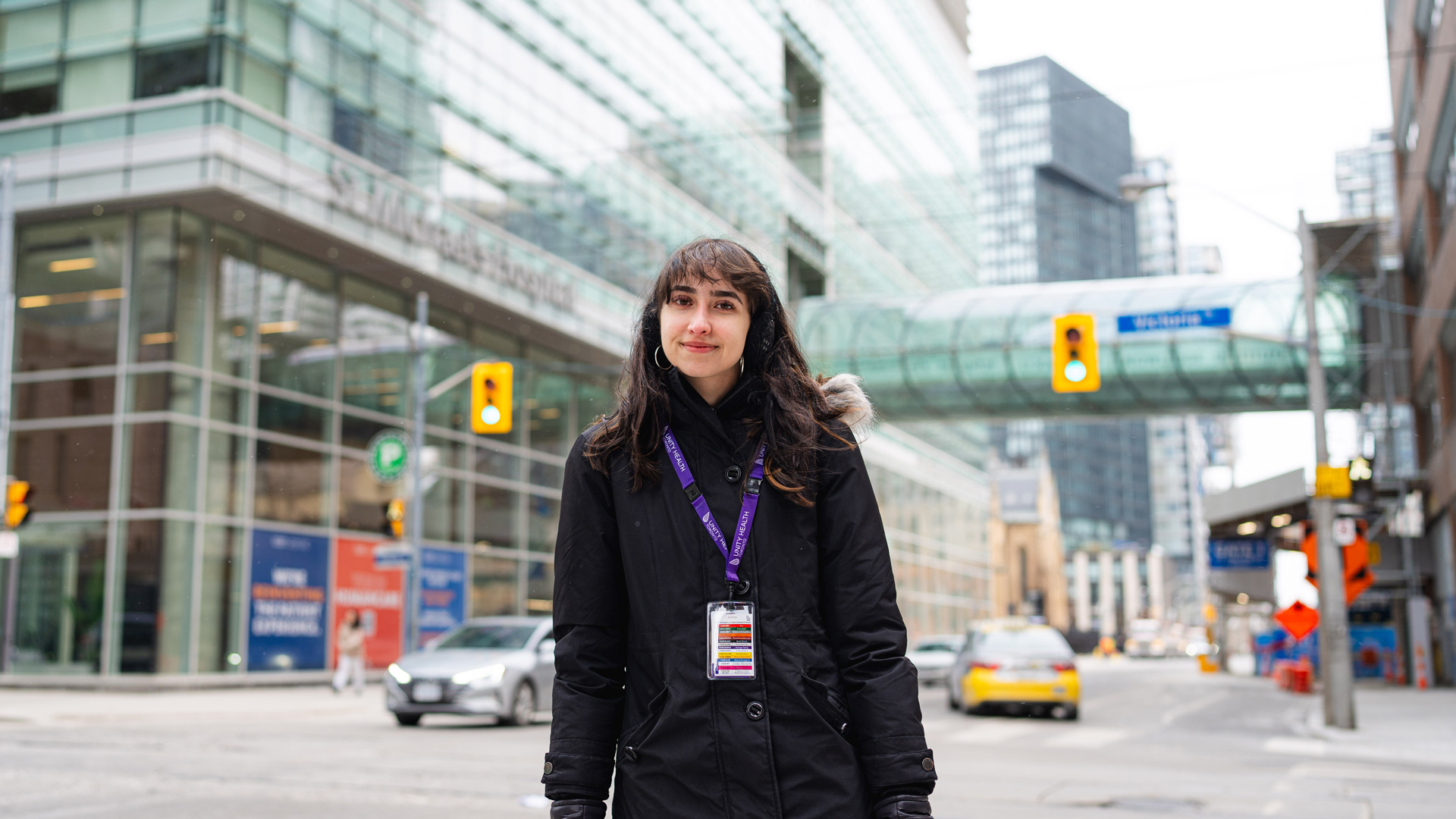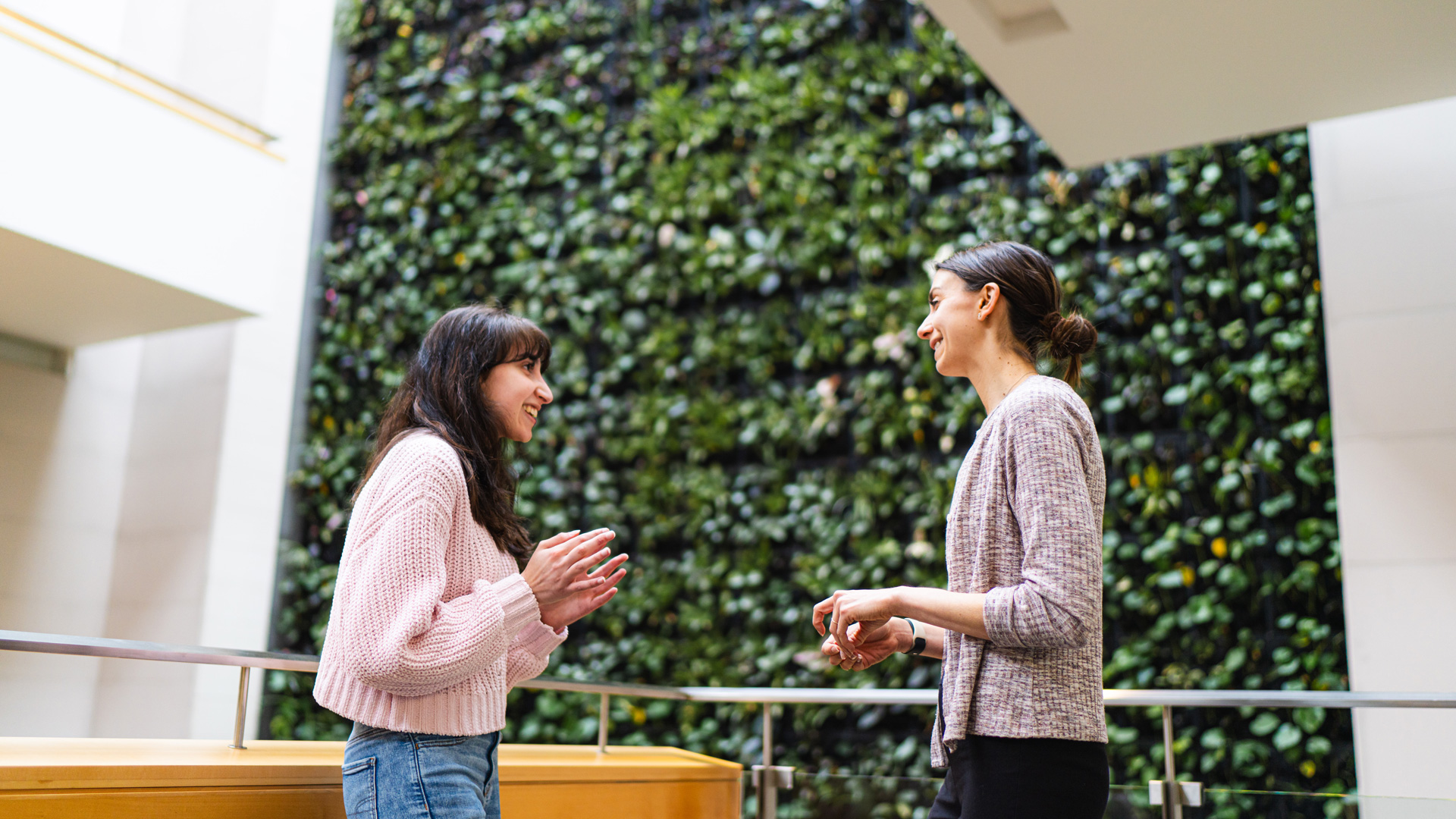- Future Students
- Current Students
- Faculty
- Staff
- Alumni
- Others
When Research Becomes the Reason: How one GH alum discovered how to remain on the frontlines while working behind the scenes

Anna Kiriakidis felt like a celebrity as a swarm of people waved flags and excitedly called out to her and four other research assistants (RAs) who had arrived in Japan as part of the University of Guelph-Humber’s involvement with SERC-GC (Soka Education Research Centre on Global Citizenship).
As it turns out, they weren’t the paparazzi, but instead a group of students and teachers from Kansai Soka High School in Japan where Kiriakidis and her fellow RAs traveled in February of 2023 to finally meet the Grade 12 students they’d spent months collaborating with online conducting multiple cross-cultural research projects on the Sustainable Development Goals.
“This was my first trip since the pandemic, so it was overwhelming in the best way possible to go back to being around people,” Kiriakidis reflected, adding that this experience was something she never thought she could have as an RA.
She’d entered the Community Social Services (CSS) program at Guelph-Humber with a laser focus on the clinical side of social work, and while she was interested in research, she saw it as something far removed from making a difference in people’s lives.
SERC-GC was just one of the several opportunities Kiriakidis pursued during her time as a CSS student, including placements with the Jean Augustine Centre for Young Women’s Empowerment, University of Toronto Master of Social Work Thesis Stream, Kids with Incarcerated Parents Canada, and The Redwood Shelter for Women and Children Fleeing Abuse.
Now, less than a year after graduating from Guelph-Humber, Kiriakidis is officially registered with the Ontario College of Social Workers and Social Services Workers, working as a full-time clinical research assistant at St. Michael’s Hospital in the Centre for Depression and Suicide Studies.
Kiriakidis is assisting in research and working directly with people – ultimately, the perfect pairing for this highly motivated GH alum who excels on both sides.
“Now I get to see how the research I learned at GH intersects with the patients I work with, and how it might impact people going forward,” Kiriakidis said, noting how fortunate she feels to be in this position. “It’s rare you jump from undergrad to working for the top hospital in Toronto. I owe it to GH for launching the research experience I needed.”
Kiriakidis also credits her GH mentors with helping her to see the importance of building a bridge between research and practice and preparing her for a field with high rates of burnout. For Kiriakidis, building resilience and understanding how to cope with the emotional demands of the field started in the classroom.

“I tell them, ‘Enter the field with your eyes wide open. Look at self-care in a way that is beneficial and meaningful to you and your individual needs’,” said CSS Assistant Program Head, Olivia Boukydis. “Self-care is often talked about like, go for a run, take a bath, read a book, and that’s all well and good, but any social worker will tell you that when you’re in the thick of the field, these might not do the trick. Create a space in your life in a manageable way and make it a nonnegotiable to check in with yourself.”
Boukydis speaks from experience - she is a CSS alum herself, graduating in 2013 before going on to work in dementia care for the next decade. As the current Assistant Program Head, Boukydis has aptly chosen to write her doctoral thesis on the topic of social work student preparedness.
“You have to manage your expectations of yourself as a practitioner,” Boukydis explained. “Many who are newly trained think if they appear affected [by the work], it’s a failure. But we’re not supposed to process and work through these challenges on our own.”
This advice is especially helpful for someone like Kiriakidis who in her first official job is tackling topics like suicide and depression with real people who are dealing with mental health challenges.
“Yes, we’re talking about heavy topics, but I think the reason these things hit people so hard is because there’s a lot of stigma associated,” she said.

As a mental health advocate, Kiriakidis is interested in exploring how stigma may impact individuals facing mental health challenges, with a focus on understanding their experiences – something she plans to dedicate time to research in the future.
Boukydis, who remains in touch with her former student said that combating stigma around mental health doesn’t always have to be with grand gestures.
“Advocacy can be in the quiet moments – having a conversation with peers and friends about what mental health looks like. If you hear something that someone says that isn’t productive, redirect them in a way that comes from sincerity and information-giving,” she said. “Anna is someone who educates herself so she can educate others and make a difference in that way.”
Currently in the process of applying for her Master’s, Kiriakidis is already thinking ahead to a PhD. In the meantime, she’s reflecting on how research has become the reason she’s reaching her goals.
“It makes me feel fulfilled in this profession to realize that research actually makes a difference,” she said. “Before, I always wondered, how do I know if what I’m doing is actually helping? Now I know that I’m a part of a wide array of components that do make a real difference in the end.”

